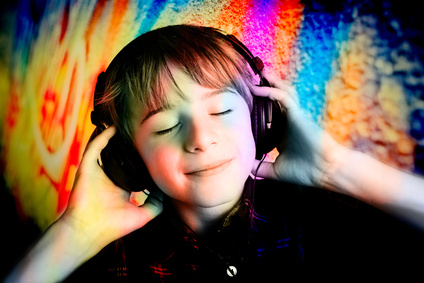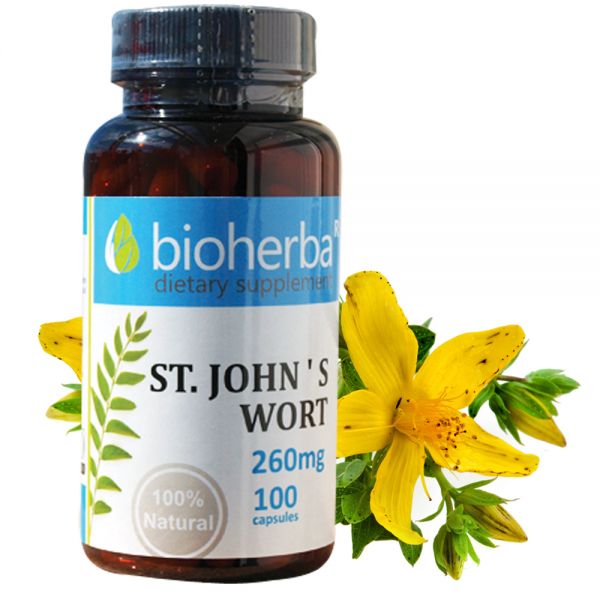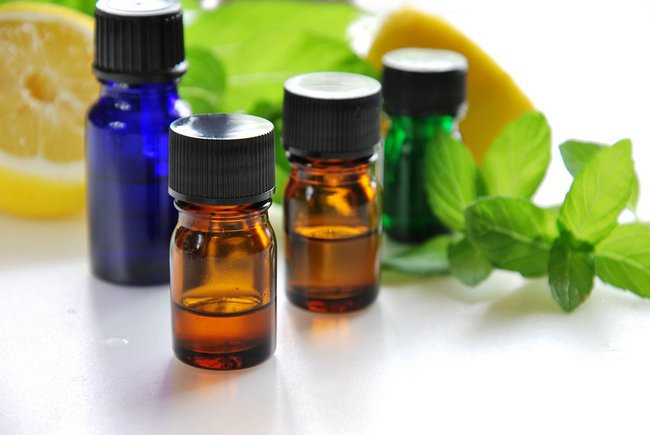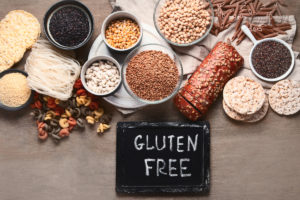Everyone gets the blues from time to time. They’re a normal part of life. But when those feelings of sadness and despair linger, when nothing seems to lift your spirits, you may have slipped into serious depression, which doctors call either major or clinical depression. Major means that your depression is considerably more serious than everyday blues. Clinical means that you need professional help. But only a minority of people who are clinically depressed require hospitalization. Most get better with regular visits to a mental health professional and with drug and non-drug treatments.

According to the National Institute of Mental Health, depression is America’s leading mental health problem. It’s so widespread that it has been likened to the common cold. In any year, more than 15 million Americans experience episodes of clinical depression. Worldwide, the incidence of the condition has increased with each successive generation since 1915.
According to the American Psychiatric Association, depression can take a number of different forms, ranging from normal grief and “adjustment phases” to major depression, when a person feels overwhelmed With despair and hopelessness. Major depression may also cause anxiety, agitation, irritability, chronic indecisiveness, weight loss or gain, and sleep disturbances.
Despite their differences, the various forms of depression don’t have clear boundaries, says Alan P. Brauer, M.D. Only a trained professional can tell when symptoms of normal grief cross the line to more serious depression.
The different forms of depression also share the same biochemical roots, Dr. Brauer says. In blood tests, people with depression invariably show unusually high levels of a hormone called cortisol. They also show variations in several brain chemicals, including serotonin, dopamine, and norepinephrine.
Scientists have yet to figure out exactly how or why this biochemical imbalance occurs, says Stuart Yudofsky, M.D., of the psychiatry department at Baylor College of Medicine in Houston. But several factors appear to be involved, including the following:
- Previous depression. If you have one episode of major depression, you’re likely to develop another one.
- Family history. The chemical imbalance that characterizes depression can be inherited, which is one reason that the condition tends to run in families. An estimated 20 percent of people who develop depression have close relatives who are affected by the condition.
- Gender. According to most surveys, women develop depression twice as often as men, recover from it more slowly, and are more likely to experience recurrences.
- Age. An estimated 15 percent of people over age 65 experience depression at some point during their later years. Instead of the classic symptoms, these people may complain of persistent fatigue, appetite loss, weight loss, and difficulty concentrating.
- Chronic illness. Depression is one of the most common-and potentially dangerous-complications of chronic illness. Many surveys have demonstrated that living with a chronic illness takes a tremendous emotional toll.
- Severely stressful events. For people who are predisposed to depression because of genetics or upbringing, severe stress may be enough to trigger an episode. It doesn’t necessarily develop immediately, however. It may take 6 months to a year.
- Medications. Several pharmaceuticals can cause or aggravate depression. The primary offenders include diazepam (Valium) and other tranquilizers, oral contraceptives, the flu medicine amantadine (Symmetrel), steroids (prednisone and cortisone), and some cancer chemotherapy drugs.
No matter what causes it, depression is treatable. Unfortunately, some people don’t know this-or try to ignore the symptoms. One-third of people who have depression never seek treatment. Even when people go to their doctors for help, they often fail to mention their depression-related symptoms. As a result, many doctors have difficulty diagnosing the condition.
If you even suspect that you have depression, see your doctor to get an official diagnosis and to discuss your treatment options. Depending on the type of depression, you may benefit most from a combination of antidepressant drugs and alternative therapies. With the array of treatments now available, approximately 85 percent of people with major depression recover, says John McIntyre, M.D., past president of the American Psychiatric Association.
Best Choices
Supplements
Build your supply of Bs. Even marginal deficiencies of the B vitamins-thiamin, riboflavin, B6, B12 and folic acid-can cause or aggravate depression, says Melvyn R. Werbach, M.D., assistant clinical professor at the University of California, Los Angeles, School of Medicine. And many Americans don’t get enough of the Bs in their diets. That’s because we tend to eat refined grains rather than whole grains-and refined grains have all of their B vitamins removed during milling. Certain vitamins and minerals have been added to enriched bread, but the B vitamins aren’t among them.

If you think that you’re coming up short on the B vitamins, take a 50- to 300-milligram B-complex supplement every day, suggests clinical nutritionist Shari lieberman, Ph.D. Make sure that the supplement contains 25 to 300 micrograms each of B12 and folic acid.
Look into L-tryptophan. Some medications treat depression by tinkering with levels of a brain chemical called serotonin. You can achieve roughly the same effect by taking L-tryptophan, an amino acid that boosts the production of serotonin.
“Several studies have shown that L-tryptophan helps relieve depression;” says Alan Gaby, M.D. “The typical dose is 1 to 2 grams three times a day with meals.” You could buy L-tryptophan over the counter until 1989, when a contaminated batch persuaded the Food and Drug Administration to order the supplement taken off the shelves. Now it’s available only by prescription. Ask your doctor about it.
Exercise
Don’t fret, sweat. According to Dr. Yudof sky, exercise helps treat depression in four ways. It triggers the release of endorphins, your body’s natural mood-elevating, pain-relieving compounds. It reduces your blood levels of the stress-depression hormone cortisol. It helps you put your life in perspective. And it gives you a sense of accomplishment, which enhances your self esteem.

Which kind of exercise is best? “Whatever you like;” says Anne Simons, M.D. “Ideally, it should be something you can do for at least a half-hour a day or at least three times a week.” Ride a bike, swim, play volleyball, garden, go bowling, play golf, or take a walk-whatever your choice, it’s the right one.
Relaxation Therapies
Wind down, cheer up. People who practice relaxation therapies often report feelings of enhanced well-being. “Many studies have shown mood elevation in people with depression who regularly elicit the relaxation response,” notes Herbert Benson, M.D., the Harvard researcher who popularized the relaxation response and introduced meditation into American mainstream medicine.
Incorporate deep relaxation into your life and practice it regularly. Choose from meditation, visualization, biofeedback, and self hypnosis, among other techniques.
Massage
Rub in relaxation. If you’ve ever gotten a massage, you know how relaxing and refreshing it feels. Studies have shown massage to be a powerful mood-enhancer. At the Touch Research Institute of the University of Miami Medical School, psychologist Tiffany Field, Ph.D., professor of psychology, pediatrics, and psychiatry at the University of Miami School of Medicine, had massage therapists give twice-a-week 20-minute Swedish massages to women hospitalized for serious postpartum depression. The women experienced decreases in their blood levels of stress hormones, and they reported improvements in mood.
Music Therapy
Sample Saul’s salvation. In the biblical Book of Samuel, King Saul exhibited the classic symptoms of depression: persistent sadness, listlessness, and irritability. To ease the monarch’s melancholy, David, the future king, played music for him.

David had the right idea. Modern research suggests that music can help ease depression. In one study, two groups of people with serious depression regularly listened to music. A third group didn’t listen to music at all. Compared with the people who didn’t listen to music, those who did showed significant improvements in mood.
Music therapists say that whatever people like works best. So listen to what you like. If your depression makes you think that you don’t like any music, play what you recall having enjoyed in the past.
Social Support
Meet people like you. Since the 1970s, many studies have shown that social isolation releases a flood of stress hormones that can trigger or aggravate depression. “But well-developed social networks reduce blood levels of these hormones,” says David Spiegel, M.D., professor of psychiatry and behavioral sciences and director of the Psychosocial Treatment Laboratory at Stanford University School of Medicine. “We humans are social animals. People help people cope with stress and depression.”
To find a support group near you, contact the National Foundation for Depressive Illness. You can obtain the organization’s toll free number by calling toll-free directory assistance.
Seek spirituality. Through faith in a higher power, many people find the inner strength to overcome crises and recover from depression. That’s what Duke University researchers discovered when they analyzed the “intrinsic religiosity” of 87 people with depression. Intrinsic religiosity is a measure of inner religious feelings-that is, feelings of spiritual connection to the universe beyond yourself, whether or not you’re a member of a religious institution. The researchers found that the greater people’s intrinsic religiosity, the faster their recovery from depression.
Embrace family and friends. One of the hallmarks of depression is social withdrawal. This was demonstrated in a study of 506 people hospitalized for heart disease, a condition that often triggers or aggravates depression. A team led by Duke University psychologist Beverly Brummett, Ph.D., evaluated the level of support that each patient received from family and friends. The more support the patients had, the less likely they were to become depressed.
Be your own best friend. “People are generally much harder on themselves than they are on others,” notes Allen Elkin, Ph.D., director of the Stress Management and Counseling Center in New York City. “Look at your problem through a friend’s eyes. Tell yourself what a friend would tell you.” Suppose, for example, that you get lost on the way to a meeting. Instead of calling yourself an idiot, consider what a friend would say: “So you took a wrong turn. So what? Everyone makes mistakes. Just turn around and get back on track. No big deal”
Herbal Medicine
Praise St. John’s wort. Some years ago, German scientists discovered that St. John’s wort has effects on brain chemistry similar to certain prescription antidepressants. “I’m very impressed with St. John’s wort as a treatment for depression,” Dr. Gaby says.

Dr. Lieberman suggests taking 300 milligrams three times a day. Make sure that the preparation you choose contains standardized levels of hypericin, the herb’s active compound.
If you’re already taking a prescription antidepressant, don’t take St. John’s wort without consulting your doctor first, Dr. Lieberman advises.
Get a lift from ginkgo. Ginkgo improves blood flow through the brain, which is why it’s used in the treatment of stroke and Alzheimer’s disease. But the herb also normalizes levels of certain brain chemicals and, as a result, can help treat depression.
You can take up to 240 milligrams a day without side effects. Look for a ginkgo product whose label says “24/6,” which means the product has been concentrated and contains 24 percent glycosides and 6 percent terpenes-the most effective compounds.
Home Remedies
Quaff coffee. In addition to jump starting millions of people every morning, coffee has a mild but noticeable antidepressant effect, thanks to the caffeine it contains.
But if you use caffeine to improve your mood, don’t exceed your individual tolerance level. Otherwise, you may experience insomnia, agitation, restlessness, and irritability.
Back off the bottle. A central nervous system depressant, alcohol aggravates depression-especially in men. “Alcohol is a powerful depressant,” Dr. Gaby notes. “If you’re depressed, you shouldn’t drink it.”
Light up your mood. Bright-light therapy is best known as a treatment for seasonal affective disorder, which is just one type of depression. But at least one pilot study suggests that it also helps major depression.
You can buy appliances that are specially designed for bright-light therapy. Look for light boxes in health-care catalogs or from Web sites or organizations offering help with seasonal affective disorder. Dr. Brauer offers a less expensive option: Step outdoors and enjoy the sunlight whenever possible.
Other Good Choices
Aromatherapy
Favor a fragrant fix. At Mie University in Tsu, Japan, psychiatrists studied 12 men who had been hospitalized for serious depression and were taking antidepressants. The researchers exposed them to a strong citrus fragrance in addition to their antidepressants. After 11 weeks, all of the men were able to reduce their dosages of medication. Some stopped taking the drugs completely.

You can buy citrus oil where aromatherapy fragrances are sold. Place several drops in a small capped vial and inhale the aroma once every waking hour.
Homeopathy
Take a matching medicine. At Duke University Medical Center in Durham, North Carolina, researchers gave 12 people with major depression, phobias, or panic disorders homeopathic medicines matched to their individual symptoms. The people took the medicines for anywhere from 7 to 80 weeks. When they were evaluated with standard psychological tests, 58 percent showed improvement in their symptoms.
Miranda Castro, who teaches homeopathyat Bastyr University in Kenmore, Washington, recommends consulting a professional homeopath to find out which medicine best suits you. When treating depression, she most often prescribes Aurum metallicum, Causticum, Gelsemium, Ignatia, Kali phosphoricum, Lachesis, Natrum muriaticum, Pulsatilla, Sepia, and Zincum metallicum.
Chinese Medicine
Arouse your qi. Practitioners of Chinese medicine attribute depression to the suppression of qi, says Efrem Korngold, O.M.D., L.Ac.
For depression associated with despair, Dr. Korngold prescribes herbal formulas containing rehmannia root, dioscorea root, cornus fruit, and poria fungus. For depression dominated by lethargy, he recommends schisandra fruit, ziziphus seed, and Chinese angelica (dang gui). And for depression with hostility and irritability, he suggests formulas containing bupleurum root, peony root, Chinese angelica, ginger, and licorice root.
Rise above anguish with acupressure. At the University of Arizona, researchers found that women who were given acupuncture at the correct points showed significantly greater improvements in mood than the women who didn’t get these treatments.
For a self-care alternative to acupuncture treatment, consider acupressure. Apply steady, penetrating finger pressure at each of the following points for 3 minutes.
- Extra Point Yin Tang, located just above your nose, exactly between your eyebrows
- Liver, situated on top of your foot in the webbing between your big toe and second toe
- Large Intestine, located on the back of your hand where the bones of your thumb and index finger meet
- Kidney, located on your inner leg, two thumb-widths above your anklebone
- Stomach, located four finger-widths below your kneecap and one fingerwidth toward the outside of your shinbone
Ayurvedic Medicine
Sip brahmi tea. For all three doshas-Vata, Pitta, and Kapha-the prescription usually involves some combination of herbs, diet, exercise, and meditation, says Alakananda Devi, M.B., of Boulder, Colorado.
In particular, Ayurvedic physicians often prescribe an herbal treatment called brahmi. Brahmi contains B vitamins, and, like several pharmaceutical antidepressants, it appears to help regulate the brain chemical serotonin. Consult an Ayurvedic physician if you are interested in trying brahmi.
Medical Measures
While a growing number of mainstream M.D.’s encourage the use of non drug therapies, they view antidepressants as the first choice treatment for depression-a position that Dr. Brauer strongly endorses. “When people are seriously depressed, they want relief as quickly as possible,” he explains. “Antidepressants usually work faster than St.John’s wort and other non drug therapies. After people come up from the depths of depression using antidepressants, then I start recommending the other approaches.”
Antidepressants work by normalizing levels of the brain chemicals associated with depression. These drugs successfully elevate mood in about 75 percent of people who use them as directed for several months. Treatment typically lasts 6 to 12 months, though you should see improvement in your symptoms within 4 to 6 weeks-possibly sooner.
Doctors can prescribe a wide range of antidepressants, and each one has different side effects. Also, each kind of antidepressant affects each person a little differently. If the first drug you try doesn’t provide sufficient relief, another probably will. You may have to try several different medications before you find one that works well for you.
If you receive a prescription for one of these drugs, make sure that you understand all of its potential side effects before you start taking it. Some side effects-dry mouth, for example-subside within a few weeks. Others, especially sexual problems, may persist.
In cases of severe depression where antidepressants prove ineffective, doctors may recommend electroconvulsive therapy (ECT), once known as shock therapy. “When used properly, ECT is safe and effective,” Dr. Yudofsky says. “Unfortunately, because of the inaccurate ways ECT has been portrayed in movies and on television, many people who could benefit from it don’t consider it.” Dr. Yudofsky says they should: ECT helps 80 to 90 percent of people with severe depression who try it.
Another mainstream treatment option is psychotherapy. A study by the National Institute of Mental Health showed that after 16 weeks of psychotherapy, 55 percent of people with mild to moderate depression reported significant improvements in their mood. Today, few therapists go in for longterm Freudian psychoanalysis. “For most major depressive episodes, 6 months of therapy is usually about right;’ Dr. Brauer says.
To find a good psychotherapist, rely on word-of-mouth referrals. Ask your doctor, family members, and friends if they can recommend anyone.
Red Flags
If you experience a sudden onset of depression that seems unrelated to any event in your life, consult your doctor. Sometimes depression signals an undeilying health problem such as a thyroid problem, lupus, rheumatoid arthritis, multiple sclerosis, or a hormonal imbalance. Treating the underlying condition usually resolves the depression.


